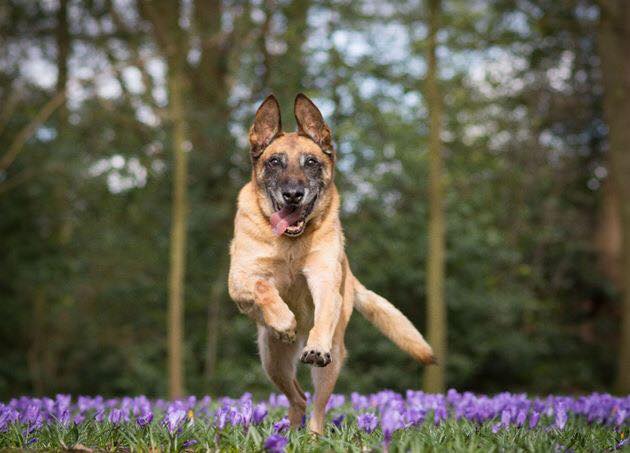Choosing a new dog for your family

Dogs bring so much pleasure into a home, but there are many things to think about when considering a new canine family member; it can be quite overwhelming to know where to start.
We would strongly encourage you to seek advice from your veterinary team prior to buying any new pet; unfortunately, only 1:20 prospective owner do this.
Firstly, consider the following:
- Do I want a puppy, or an adult dog?
- Do I want a pedigree, or a cross-breed?
- Can I easily afford the costs associated with owning a dog, beyond just the purchase price. Consider food, bedding, toys, routine veterinary treatment, veterinary emergency treatment, boarding costs when on holiday, day-care costs when in work? 98% of the public underestimate the costs of owning an animal. 30% of people estimate the lifetime cost of owning a dog to be under £500! However, the PDSA PAWS Report shows that the lifetime costs of a dog are actually between £9,000 and £16,000 depending on size etc.
- Are my home and garden suitable for a dog?
- What age are my children? Careful consideration needs to be taken when introducing a dog into a house with a baby and/or young children
- Do I have time to properly train a dog?
- Do I have time to properly socialise a dog – with both humans and other dogs?
- Can I provide a dog with enough contact time / mental stimulation? A dog that doesn’t receive enough social attention is unlikely to become a well-behaved pet.
- Do I have the time to physically exercise a dog every day?
- Am I ready to make a long-term commitment of many years?
Once you are happy with your answers to all the above, then please carefully consider what breed, or type, of dog is most suitable for you and your family:
- Size matters - Larger breed dogs obviously cost more to feed, but also routine medication, emergency medication and boarding costs are more expensive.
- Certain breeds may be very appealing as a puppy but some of these “cute” features that make them visually attractive can mean they are very prone to significant health issues throughout their lives.
There are certain anatomical features that we advise you avoid when choosing a new puppy, especially if they have been very exaggerated by breeding. These include
- a long back (due to an increased risk of serious spinal problems)
- excessively wrinkled skin (due to an increased risk of skin and ear infections)
- a shortened nose / flattened face (due to breathing difficulties and also problems keeping cool)
- a slanted back (due to increased hip and back problems)
- bulging eyes (due to a higher risk of injury and disease)
This is just a brief guide; all of these anatomical features are very much on a sliding scale.
We strongly advise that you fully research any pedigree breed you are considering and please remember to talk to your veterinary team.
After choosing an appropriate breed, or type, of dog, what's next?
- Sadly, there are a huge number of un-loved dogs in rescue centres in the UK. We would strongly encourage you to help them. Please consider re-homing a dog, before opting to buy a puppy. A reason often given for not re-homing an adult dog is the fear of behavioural problems. These fears are not evidence-based and any issues are usually short term. Training a puppy can actually be much harder than many people imagine
- Should you decide to buy a puppy, please research the breeder well first
- The UK, especially Wales, has a large number of “puppy farms” that are constantly using new tactics to fool people into believing they are reputable breeders
- Even worse, young puppies are being transported long distances from puppy farms in Eastern European countries to be sold on the UK market
- Always ask to see the parents and the other litter mates
- Always go to the breeder's home. Never let them bring the puppy to you, or “conveniently” meet you halfway
- If any of the details seem suspicious, please look elsewhere
- Never buy a puppy off someone thinking you are "saving it". Unfortunately, you may inadvertently fuel a trade where many animals suffer poor conditions. Instead, please report the person, as soon as possible, to the RSPCA and/or the Local Authority Licensing Department
- If the breeder states that your puppy is vaccinated, ensure you are provided with an official veterinary vaccination certificate
- It is now a legal requirement that all dogs have a microchip implant. Please check this
- In our opinion, there is no reason to dock the tail of any puppy; it is a painful, unnecessary operation and limits the dogs ability to communicate properly in later life. However, if your puppy already has a docked tail, they must be accompanied by a supporting Veterinary Certificate. This is to ensure the procedure was done legally, by a veterinary surgeon
- Please remember that an expensive puppy does not necessarily indicate good health and good breeding
Now I have my new dog, how do I keep him healthy?
Please make an appointment with your veterinary team to have a health check and discuss their health requirements. This is best done within the first week.
We strongly advise insuring your dog. Non-routine veterinary care can be costly and Third Party Liability Insurance is very important.
As with many things, prevention is better than cure and although certain things that may be advised ( neutering, parasite treatment, vaccination etc) may seem expensive at the time, the complications that can be seen if these are not done properly can be far more costly and worse, can put your pet's health at risk.
Any questions? Please ask.





